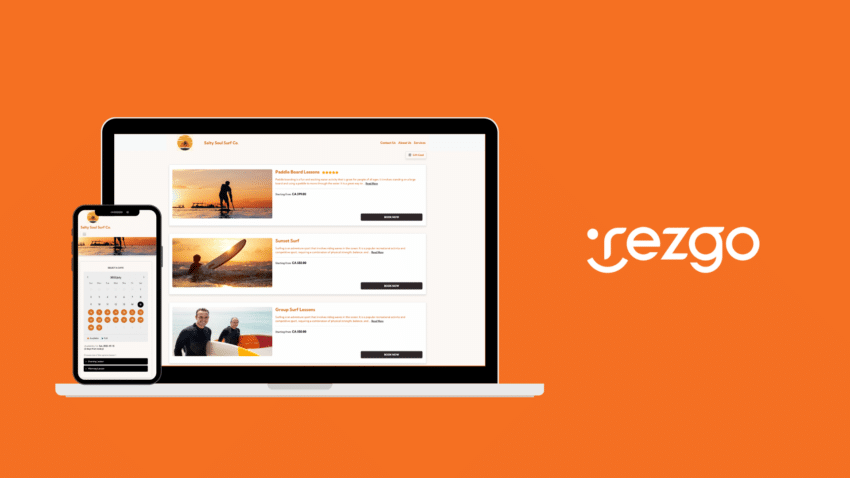Table of Contents
As a tourism operator, you’ll know the tourism industry constantly changes. New and emerging trends, unforeseen global events, and daily advances in technology, can feel overwhelming.
While change can sometimes feel constant, it doesn’t have to throw your entire operation into chaos every time it takes effect.
Today, we’ll explore how to approach change in the tourism industry, strategies for remaining flexible during trying times, and how a stellar booking system can ease the impact of change on your business, while still enabling you to create a winning guest experience.
How change affects the tour industry
By the end of 2023, international tourism returned to a staggering 88% of pre-pandemic levels, as travelers and tour-goers sought to meet their jet-setting desires.
In today’s tourism climate, increased traveler numbers combined with the constant force of change, mold all facets of business for small tour operators, from daily operations to long-term strategies.
With technological developments rapidly emerging and shifting guest preferences towards personalized travel experiences, it can feel like a game of one step forward, two steps back.
To better prepare for tackling change as part of your tour operator business, it’s important to familiarize yourself with the potential drivers for change that may emerge.
5 primary drivers of change in the tourism industry
Technological progress, economic changes, market factors, and global events can all have a lasting impact on your business and the wider tourism industry. Let’s explore each of these a bit further.
Seasonality in tourism

If you’re a small tour operator with a few years in business, you’ll understand how the changing seasons affect your operations. Depending on your location and tour offerings, you might experience fluctuation as travelers come and go, especially from winter to summer and vice versa.
As guests flock to warmer climates and in turn, snowy escapes, your peak tour operating season shifts too, to reflect the travel patterns of your tour-goers. This impacts not only your business’ tour offerings, but your staffing numbers and revenue, too.
It’s not all bad news, though. Check out our guide to making the most of your shoulder season and low season.
Global events affecting tourism
If anything emerged from the COVID-19 pandemic, it was our collective ability to pivot at a moment’s notice.
Reflect on your personal experience with the COVID-19 pandemic. Did you redesign your tours to suit smaller groups or outdoor settings as part of social distancing requirements? Did you adopt enhanced cleaning procedures and updated health protocols for the safety of your guests and staff?

While you might not be able to predict global events like COVID-19, it is a prime example of the importance of preparing contingency plans in the face of future widespread events.
Labor disruptions impacting tourism
Labor disputes and strike action have the potential to affect transportation to your city or region, or may even affect surrounding attractions in your area. Not to mention, staff shortages might also plague your business.
These disruptions can cause sudden changes in your tour-goers’ itinerary, requiring alternate arrangements or last-minute cancellations.
Technological advances benefiting tourism
You can’t talk about change in the tourism industry without addressing the advancements made in technology. In the last few years alone, we’ve seen the emergence of generative AI become even more prominent across the tourism industry, including for tours.
Small tour operators can use emerging technology to increase efficiency and improve their customer experience, leveling the playing field against bigger operations with larger budgets.
Market competition affecting tourism businesses
Maybe you once dominated your region with the very best in whitewater rafting, horseback riding, and mountaineering tours. Yet, you’re seeing more tour operators emerge throughout your area.
Suddenly, you’re at odds with new competitors disrupting your monopoly over the market. That’s because shifting markets and competition in your area as other small tour operators pop up, can also impact your business.
While new players are a part of life as a business owner, creating a one-of-a-kind guest experience for your tour-goers will set you apart as a pioneer in tourism leadership.
Advantages of adapting to change as a small tourism business

Regardless of the types of change your small tour operating business faces, either on a local or global scale, you can use these factors to your advantage. Adaptation to change showcases your agility and flexibility in your changing industry. It also helps you to make quicker, better business decisions.
There’s also the advantage of pivoting to target new trends within the tourism industry and emerging markets, enabling you to cater to your guests by offering targeted tours.
And remember, many other industries experience change. Your flexibility and the growth of your skill set as you adapt will help you stay on top of your own business, and also be valuable and transferable to future endeavors.
Strategies for staying flexible in a changing industry
Staying flexible and agile is helpful to your business during times of change. Let’s look at a few strategies to help you stay responsive and on your toes.
Diversify your tour offerings
As the demand for travel shifts to address new and emerging trends, your tour offerings and packages should shift too!
By diversifying your tour offerings, you invite a wider audience to book with you. With the rise of trends like “bleisure” travel, pivot your tour offerings to attract business guests in your region. Or adapt to the desire for private bookings by offering private, small group events.
Embrace continuous growth
As a small tour operating business, embracing continuous learning reduces stagnancy in your operations.

Remain up-to-date on industry trends by attending industry conferences, following leaders and professionals on LinkedIn, and subscribing to industry newsletters. By embracing a forward-thinking mindset, you anticipate change and jump on industry opportunities ahead of your competitors.
Support tourism staff education
Support your staff by fostering their growth and innovation, and encourage your employees to embrace continuous learning.
Provide opportunities to fine-tune their personal development and hone their leadership skills. For instance, supply teams with funds to attend industry workshops or tour webinars to ensure your staff remain engaged and informed.
How tour operators can help their teams navigate change
Start by embracing and implementing a workplace culture that encourages clear communication. For example, hold weekly staff meetings, or individual check-ins. Update them on incoming changes and walk through new strategies affecting your guests.
Also, acknowledge their feelings and provide emotional support throughout times of stress. This helps your teams navigate change while providing them with solace.
Your workplace communication is two-way. Foster an environment of open dialogue; encourage and listen to your team’s feedback. Your guides are with your guests day in and day out. They are your greatest source for insights from your tour goers while on their excursion.
A good booking system helps your business adapt to change

A booking system provides your small tour operator business with data-driven insights in the face of change. A booking system with real-time data helps you analyze booking patterns and trends. It also looks at customer preferences to cater your tour offerings and pivot your business strategies as needed.
By centralizing your sales channels in effective booking software, you can stay flexible. Your booking software should let you make on-the-spot adjustments to real-time availability, pricing, and more. From there, those changes can be reflected in your OTA listings, with your resellers, and for your agents. This gives you the freedom to be agile while your competitors are stuck making adjustments channel by channel.
Final Thoughts
Although change in the tourism industry can be intimidating, knowing the key drivers and understanding how change affects the tourism industry can better equip you and your business. Knowing the advantages of adapting during periods of change and how best to support your staff and guests can also prove helpful.
Rezgo’s tour booking software is the ideal choice to help you pivot your business during times of change. Remain agile yet open with data-driven insights and analytics, streamlined booking processes, and centralized sales channel management, and you’ll easily stay ahead of the competition when adapting to change.





